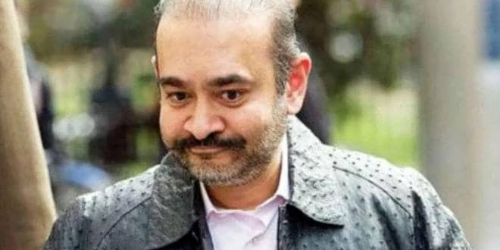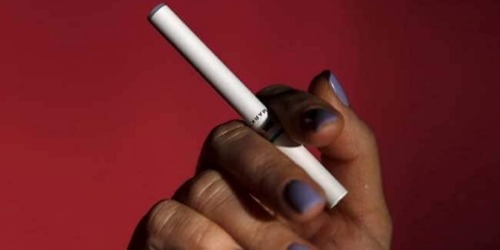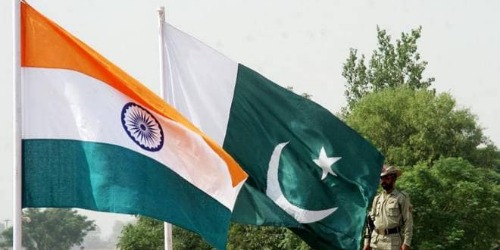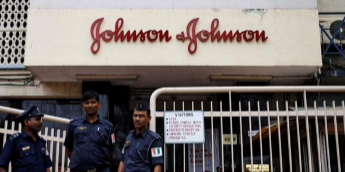Nirav Modi plays health card, seeks bail citing anxiety, depression

Playing the health card to get out of jail, fugitive diamond merchant Nirav Modi has filed another bail application citing "anxiety" and "depression". He has requested the authorities to keep him under house arrest as he is facing health issues, reported India Today. As per UK laws, a prisoner has to mention a new ground in case previous application is rejected. Modi is the main accused in the Rs 13,700 crore Punjab National Bank fraud.
Rejecting his bail plea for the fourth time on October 17, a London court had remanded Modi into custody till November 11. His extradition trial to India is scheduled between May 11 and 15 in 2020. Till then, he must re-appear via videolink every 28 days for call-over hearings until the case management for the trial kicks in from February next year.
Nirav Modi has been lodged at South-West London's Wandsworth jail, one of England's most overcrowded jails, since his arrest on March 19. He was arrested after an extradition warrant executed by Scotland Yard on charges brought by the Indian government, which is being represented by the UK's Crown Prosecution Service (CPS) in court.
Since his arrest, his legal team, led by solicitor Anand Doobay and barrister Clare Montgomery, have made four bail applications, which have been rejected each time due to Modi being deemed a flight risk.
The CPS had told the court that Modi had travelled despite the Indian government revoking his passport and issuing a red corner notice against him before his arrest. The CPS warned he could flee again if he was given bail. Westminster Magistrates' Court was earlier told that Modi was the "principal beneficiary" of the fraudulent issuance of letters of undertaking (LoUs) as part of a conspiracy to defraud PNB.
- 0
- Leave a comment
Commerce Ministry bans exports of e-cigarettes, e-hookah

The commerce ministry on Monday said it has banned exports of electronic cigarettes, e-Hookah and other similar devices.
The notification was issued to comply with the government's ordinance issued on September 18 to ban production, import, distribution and sale of electronic cigarettes.
"Export of electronic cigarettes including all forms of Electronic Nicotine Delivery Systems, Heat Not Burn Products, e-Hookah and the like devices by whatever name called and whatever shape, size or form it may have...is prohibited," the Directorate General of Foreign Trade (DGFT) said in a notification.
However, it said the ban does not conclude any product licensed under the Drugs and Cosmetics Act, 1940.
The ordinance issued on September 18 bans e-cigarettes, making the production, import, export, transport, sale or advertisements of such alternative smoking devices a cognizable offence, attracting jail term and fine.
First time violators will face a jail term of up to one year and a fine of Rs 1 lakh. For subsequent offences, a jail term of up to three years or a fine of Rs 5 lakh, or both, according to the ordinance.
The storage of e-cigarettes shall now be punishable with imprisonment of up to six months or a fine of up to Rs 50,000 or both.
Recently, the DGFT, which is under the commerce ministry, had banned import of e-cigarettes.
Pakistan allows import of life-saving drugs from India

The Pakistan government has allowed the import of life-saving drugs from India despite escalating tensions between the two countries over the Kashmir issue, according to a media report on Tuesday.
Pakistan downgraded its diplomatic relations and formally suspended its trade relations with India last month after New Delhi revoked the special status of Jammu and Kashmir and bifurcated it into two union territories.
India has maintained that Jammu and Kashmir was an integral part of India and the issue was strictly internal to the country. Pakistan's ministry of commerce, through a statutory regulatory order, gave the permission to import and export medicines from India, Geo TV reported.
Trade relations between the two neighbours were already strained following the Pulwama terror attack as India imposed 200 per cent customs duty on all goods imported from Pakistan. Pakistan has imported over USD 36 million worth of anti-rabies and anti-venom vaccines from India over the last 16 months.
The future of Telemedicine in India

India’s telemedicine market is growing immensely and is impacting the international economy in terms of growth rate, revenue, sale, market share and size, showing the market size in India.
Telemedicine employs collaborative technologies to facilitate a virtual doctor-patient encounter. These solutions combine voice, video, medical data, and collaboration tools, to facilitate a patient to see a doctor, without having to travel long distances.
In 2018, telemedicine has expanded in India. It has undertaken a new way for doctor consultations. This sector is at an ever-growing stage with high scope of development. This rapid growth in the last year presents telemedicine as the next frontier in the healthcare. The year 2019 will be an important year for telemedicine industry. Health data is useful in many ways and one of them is AI (Artificial Intelligence). In future, this will help in identifying issues related to medical health. Through IOT (internet of things) perspective medical emergencies like Asthma attack, heart failure, diabetes can be monitored via connected devices.
However, with the introduction of Ayushman Bharat Scheme, a biggest health financing scheme, Indian government has come up with ICT (Information and Communication Technology)focusing on the development of health sector in the country. This scheme includes Tele-health development ideology for long distance medical care to make a safe, effective, efficient, patient-centered and timely health management environment.
This integrated market of telemedicine platform will have a mix approach in the coming year. In a developing country like India, there is a lot of room for development. With the communication industry evolving at such a rapid pace, telemedicine sector is bound to develop too.
Faulty medical devices: Government sets up panel to frame rules for compensation

In good news for patients, the government has set up an expert panel to frame rules for compensation in case of an adverse event due to a faulty or unsafe medical device.
Health ministry’s apex panel has cleared formation of the sub-committee to amend Medical Devices Rules, 2017, to include provisions for compensation on the grounds of a malfunction in the device, or it being unsafe or non-compliant.
This would help plug a loophole in the rules, as under the existing dispensation, the government initially found itself “helpless” in handling the Johnson & Johnson hip implant case.
The decision to bring in separate rules has been taken to simplify the legal process, cut down time and multiple stages. A case of an adverse event due to a medical implant is difficult to prove in the existing system and lacks clarity in law, experts said earlier.
The need for a legal provision for compensation is especially important for India with its socio-economic demographics, which may not have the strength to fight against powerful corporates in courts, sources said. The compensation will have to be given in the case where an adverse event or death is reported only for already approved devices, and not those which are under clinical trials.


